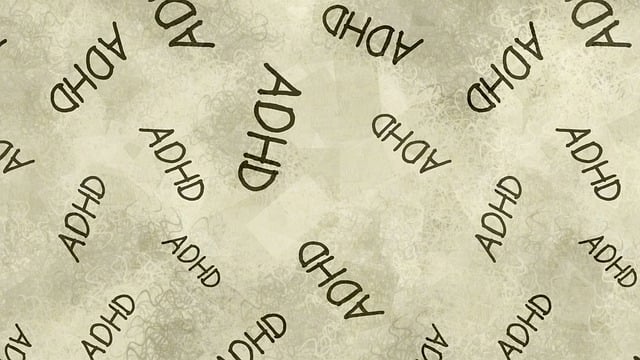Cultural sensitivity is a cornerstone of successful mental healthcare in diverse communities like Castle Rock, where recognizing and respecting individual cultural backgrounds fosters trust and enhances therapy outcomes. Castle Rock Sexual Dysfunction Therapy integrates culturally aware exercises and tailors self-care practices to clients' unique identities, empowering them to navigate their mental health journeys holistically. Effective communication, emotional intelligence, and training on bias awareness and cross-cultural communication are vital for reducing stigma and providing inclusive care tailored to diverse needs, as exemplified by the therapy practices in Castle Rock.
Cultural sensitivity is a cornerstone of effective mental healthcare. In a diverse society, understanding the impact of cultural background on mental health and therapy is paramount. This article explores these dynamics through the lens of Castle Rock Sexual Dysfunction Therapy, highlighting challenges faced and strategies employed for culturally sensitive care. We delve into training, resources, and continuous improvement to foster inclusive practices, ensuring all individuals receive holistic support tailored to their unique backgrounds.
- Understanding Cultural Sensitivity: Why It Matters in Mental Healthcare
- The Impact of Cultural Background on Mental Health and Therapy
- Challenges in Providing Culturally Sensitive Care: A Case for Castle Rock Sexual Dysfunction Therapy
- Strategies for Effective Communication and Engagement Across Cultures
- Fostering Inclusive Practice: Training, Resources, and Continuous Improvement
Understanding Cultural Sensitivity: Why It Matters in Mental Healthcare

Cultural sensitivity is a cornerstone in mental healthcare practice that goes beyond treating symptoms to understanding and respecting individuals’ unique cultural backgrounds. In a diverse society like Castle Rock, where Sexual Dysfunction Therapy is often sought, recognizing cultural nuances is vital. Every client brings their own experiences, beliefs, and values shaped by their heritage, which can significantly impact their mental health journey.
This awareness is crucial as it enables therapists to create a safe and inclusive environment. For instance, integrating self-awareness exercises that consider cultural context can foster better patient-therapist relationships. Encouraging clients to explore their Self-Care Practices and Self-Esteem Improvement techniques tailored to their cultural identity can lead to more effective therapy outcomes. By being culturally sensitive, mental health professionals ensure they are not only addressing the present but also empowering individuals to navigate their mental health in a way that resonates with their personal history.
The Impact of Cultural Background on Mental Health and Therapy

Understanding the impact of cultural background on mental health is paramount in modern therapy practices. Every individual brings their unique cultural lens to their experiences and interactions, which significantly influences their perceptions of mental illness and the effectiveness of treatment. For instance, a person from a community with strong collective values might express distress differently than someone from an individualistic culture. This variation challenges therapists to adapt their approaches, ensuring culturally sensitive practices that respect and embrace diverse perspectives.
When considering Castle Rock Sexual Dysfunction Therapy, for example, cultural context plays a crucial role. Therapists must be attuned to the specific beliefs and norms surrounding sexual health within different communities. By integrating self-care routine development for better mental health and mental illness stigma reduction efforts, therapists can foster environments that promote healing and self-esteem improvement. This culturally responsive approach not only enhances therapeutic outcomes but also strengthens the bond between therapist and client.
Challenges in Providing Culturally Sensitive Care: A Case for Castle Rock Sexual Dysfunction Therapy

Providing culturally sensitive care can present unique challenges, especially within specialized fields like Castle Rock Sexual Dysfunction Therapy. In a diverse society, therapists must navigate various cultural nuances and beliefs to offer effective treatment. The complexity arises when addressing sexual dysfunction, as cultural factors heavily influence perceptions of sexuality, relationships, and personal boundaries. For instance, what is considered normal or healthy sexual expression varies across cultures, and these differences can significantly impact therapy outcomes.
Therapists at Castle Rock Sexual Dysfunction Therapy recognize that a one-size-fits-all approach rarely succeeds in addressing these sensitive issues. Building rapport with clients from diverse backgrounds requires an understanding of their cultural context. This involves adapting therapeutic techniques to foster trust and open communication, ensuring clients feel heard and respected. By promoting inner strength development and confidence boosting strategies tailored to individual needs, the therapy can effectively navigate cultural barriers, ultimately enhancing mental health awareness and overall well-being.
Strategies for Effective Communication and Engagement Across Cultures

Effective communication is a cornerstone of successful cultural sensitivity in mental healthcare. To bridge cultural gaps, therapists should employ strategies that foster understanding and trust. This includes active listening, where practitioners give undivided attention to patients’ stories, validating their experiences, and acknowledging their perspectives. Additionally, incorporating culturally relevant resources, such as translation services or materials tailored to specific ethnic or religious groups, can enhance engagement and accessibility.
The role of emotional intelligence is pivotal in this process. Therapists with high EI can perceive and respect clients’ emotions, adapt their communication style, and build stronger connections. Promoting self-care practices among both therapists and patients, through techniques like mindfulness or cultural exchange programs, further contributes to a supportive environment. Together, these strategies, including those championed by Castle Rock Sexual Dysfunction Therapy, aim to reduce the stigma surrounding mental illness and foster inclusive care that respects diverse backgrounds and needs.
Fostering Inclusive Practice: Training, Resources, and Continuous Improvement

Fostering an inclusive practice environment is essential for delivering effective mental healthcare services to a diverse range of clients, including those seeking Castle Rock Sexual Dysfunction Therapy. Training plays a pivotal role in equipping professionals with the knowledge and skills to navigate cultural differences and provide sensitive support. This involves enhancing awareness about implicit biases, learning cross-cultural communication techniques, and understanding the impact of societal norms on mental health experiences. Workshops and seminars focused on crisis intervention guidance can empower therapists to respond appropriately during culturally charged situations, ensuring client safety and comfort.
Resources such as online platforms, peer-reviewed articles, and cultural competency manuals are invaluable tools for continuous improvement. These resources provide practical insights into various cultural contexts, offering strategies to adapt therapeutic approaches accordingly. Additionally, participating in Stress Management Workshops Organization programs can help professionals develop resilience and learn effective stress management techniques, which are essential when dealing with culturally diverse clients. By embracing ongoing education and fostering a culture of learning, mental health practitioners can offer more personalized and inclusive care, ultimately enhancing the accessibility and quality of services like Castle Rock Sexual Dysfunction Therapy.
Cultural sensitivity in mental healthcare is no longer a consideration—it’s an imperative. As practices like Castle Rock Sexual Dysfunction Therapy navigate diverse patient backgrounds, understanding cultural nuances is key to effective treatment. By implementing strategies for inclusive communication and continuous improvement, mental health professionals can create environments that foster trust and healing for all individuals, regardless of their cultural origins. This approach not only enhances therapeutic outcomes but also ensures a just and equitable healthcare system.














